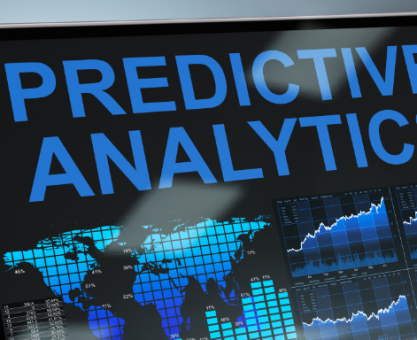Executive Summary
-
Explore how AI is transforming sustainable and ethical practices in international trade.
-
Understand the environmental and social benefits AI brings to global supply chains.
-
Learn about the challenges and limitations of implementing AI in trade.
-
Discover practical steps and real-world applications of AI in enhancing trade sustainability.
-
Gain insights from industry experts on leveraging AI for ethical trade practices.
Introduction
In today’s global market, the demand for sustainable and ethical international trade practices is stronger than ever. Stakeholders—from governments to consumers—are pushing for responsible sourcing, eco-conscious logistics, and fair labor conditions. However, ensuring sustainability across complex global supply chains is no easy task. That’s where Artificial Intelligence (AI) steps in.
AI enables smarter decision-making, streamlines operations, ensures regulatory compliance, and brings greater transparency. This article explores how AI can be a catalyst for sustainable and ethical trade, along with the steps, benefits, and risks businesses need to consider.
Definitions / Context
Artificial Intelligence (AI): The simulation of human intelligence by machines, especially systems capable of learning, reasoning, and problem-solving.
Sustainability in Trade: Business practices that minimize environmental harm while maintaining economic growth.
Ethical Trade: Ensuring that production and trade activities uphold human rights, fair wages, and safe working conditions throughout the supply chain.
Benefits / Pros
-
Supply Chain Optimization: AI forecasts demand accurately, reducing overproduction and waste, which lowers carbon emissions.
-
Regulatory Compliance: AI tools can scan supplier data for compliance with environmental and labor regulations, ensuring ethical sourcing.
-
Transparency: Real-time data and tracking create visibility into sourcing, production, and labor practices.
-
Risk Mitigation: Predictive analytics flag potential supply chain disruptions—natural disasters, geopolitical risks, or regulatory changes—before they escalate.
Risks / Cons / Challenges
-
High Implementation Costs: AI systems require significant investment in technology and training, which may be difficult for SMEs.
-
Data Privacy Issues: Gathering and processing large amounts of data raises concerns over user privacy and security.
-
Bias in Algorithms: AI can inherit biases from historical data, unintentionally reinforcing unethical practices.
-
Regulatory Complexity: International trade laws and compliance standards vary across borders, complicating AI deployment.
Step-by-Step Process
Implementing AI in Trade for Sustainability:
-
Assessment: Identify inefficiencies and compliance gaps in your current trade processes.
-
Data Collection: Collect accurate and comprehensive supply chain data.
-
Tool Selection: Choose AI tools aligned with sustainability goals (e.g., emission tracking, ethical compliance monitoring).
-
Pilot Testing: Start small with a test program to refine the system.
-
Full Rollout: Scale the AI solution across your entire trade ecosystem.
-
Continuous Monitoring: Use dashboards and feedback loops to optimize results and adapt to new regulations.
A multinational apparel brand used AI-powered analytics to assess its supply chain’s environmental impact and supplier practices. By integrating carbon tracking and labor audit tools, it achieved a 20% reduction in logistics-related emissions. Simultaneously, AI tools helped flag non-compliant factories, leading to improved worker conditions. The initiative boosted brand trust among eco-conscious customers and attracted ethical investment capital.
Global Retailer–
Expert Tips / Strategic Insights
-
Prioritize Transparency: Regular reporting and third-party audits enhance the credibility of AI-enabled ethical trade systems.
-
Train Your Team: Equip your workforce with the skills needed to interpret and work with AI insights.
-
Choose Scalable Tools: Start with modular solutions that can grow with your business needs.
-
Stay Updated: Follow updates in global sustainability frameworks like GRI, UNGC, and ISO 14001.
Tools / Resources / Calculators
-
Carbon Tracking Tools: Carbon Trust, IBM Envizi
-
Ethical Compliance Platforms: Fair Trade USA, Sedex, EcoVadis
-
AI Providers: Microsoft Azure AI, Google Cloud AI, IBM Watson
-
Learning Resources: Coursera, edX courses on Sustainable AI and Ethical Trade
Conclusion
AI is redefining how global businesses approach sustainable and ethical trade. From reducing carbon emissions to verifying labor standards, AI empowers companies to align profitability with purpose. However, realizing its full potential requires overcoming regulatory, financial, and ethical challenges. With the right strategy and tools, AI can help create a more responsible and future-ready international trade ecosystem.






















